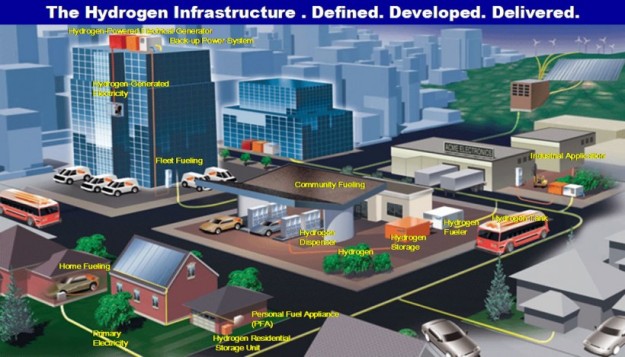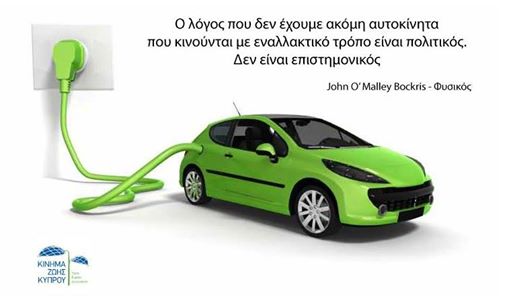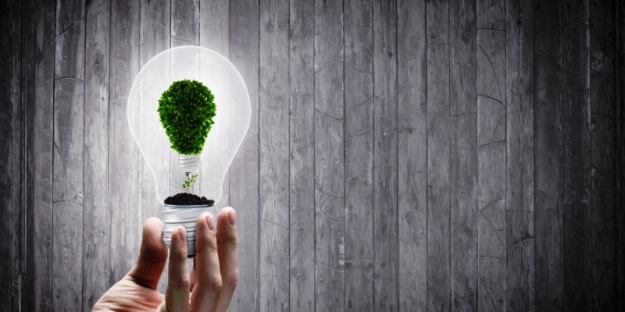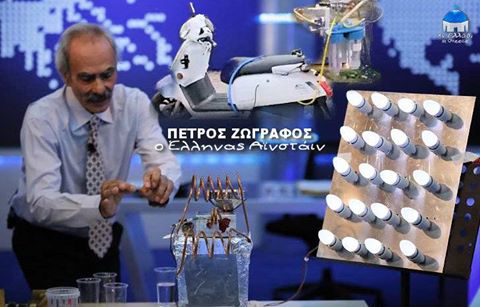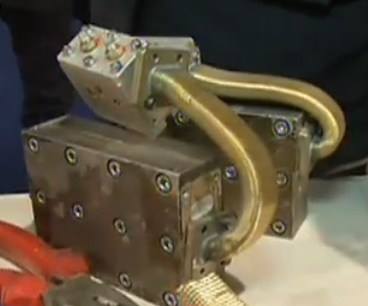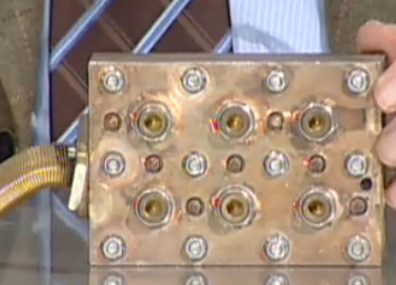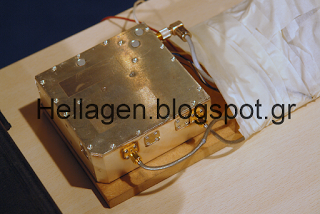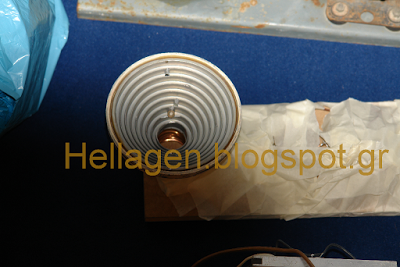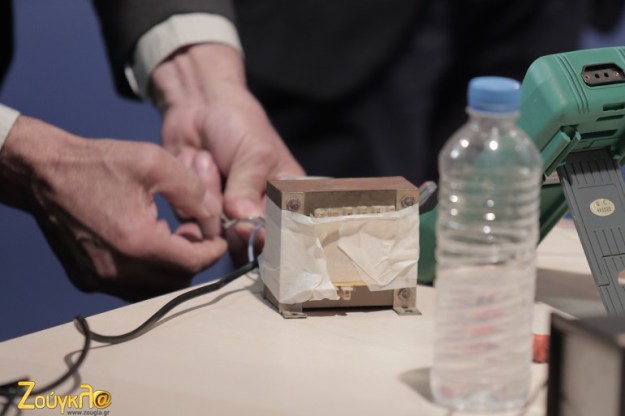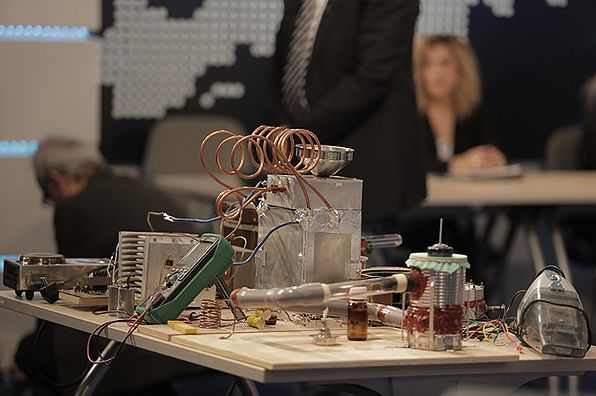Το μεγάλο τηλεοπτικό δίκτυο PBS των ΗΠΑ, έστειλε στην Ελλάδα έναν από τους πιο διάσημους δημοσιογράφους του, τον Malcolm Brabant, για να αναδείξει την εκπληκτική εφεύρεση του Πέτρου Ζωγράφου, που αλλάζει τα δεδομένα της “Βιομηχανικής Εποχής” και να του πάρει συνέντευξη.

Η πρωτοπορία και τα πλεονεκτήματα, που η συγκεκριμένη τεχνολογία εφαρμόζει, μπορούν να αλλάξουν όλα τα ενεργειακά δεδομένα στον κόσμο μας, όπως αναφέρεται στο αφιέρωμα του PBS.

Η πρωτοπορία και τα πλεονεκτήματα, που η συγκεκριμένη τεχνολογία εφαρμόζει, μπορούν να αλλάξουν όλα τα ενεργειακά δεδομένα στον κόσμο μας, όπως αναφέρεται στο αφιέρωμα του PBS.
(Αγγλικό κείμενο):
Published on 28 Dec 2016, 0:10
In Athens, a scientist claims to have developed a revolutionary method for turning water into electricity. The search for cheap, clean energy is something consuming scientists around the world. But Petros Zografos believes his discovery is the most efficient to date, and he’s created a mini power station that he claims could be the future of energy. Special correspondent Malcolm Brabant reports.
HELLAGEN
MALCOLM BRABANT: Physicist Petros Zografos spent 30 years trying to work out how, using minimal energy, he could break down the water molecule, H20, into its component parts, hydrogen and oxygen. Now he thinks he`s cracked it, with this, his mini power station, which he hopes will help reverse global pollution.
PETROS ZOGRAFOS, Physicist (through translator): Since I have children and grandchildren — my son has just made me a grandfather — I cannot go on watching this planet being so violently abused.
MALCOLM BRABANT: George Schoell, from Southern Germany, whose company makes solar panels, is interested in helping develop and market the invention. He headed out of Athens for a nearby Greek island to inspect it for the first time.
GEORGE SCHOELL, Businessman: For the people, this would be exactly what they want, exactly what they can use at home. But for the big energy suppliers, this will be a problem, because if anyone takes his own energy, no one will need the grid anymore.
MALCOLM BRABANT: In the inventor`s modest home, there was a last-minute technical briefing beneath a bust of Zeus, the ancient Greek god who dispensed power through thunderbolts.
Then colleague Pantelis Kotsianis gave a demonstration.
PANTELIS KOTSIANIS, Scientist: We have no wires, no external wires from the grid connected to the system, stand-alone, and reconnect later on to the mains, get off the grid, and then we will put the water from the glass into this tube, and within 40 seconds, we will have the power to power the whole house.
Right now, we`re off the grid. We have turned off the switch. We will prove that this connector has no power at all. Look, there`s no power on this connector.
So I`m putting some water slowly right now, and we just connect the mains right now to the machine. And, basically, you can just — well, basically can run the whole house and can turn on the TV and anything else you want right now.
MAN: How much power do you have? How much power do you have?
PANTELIS KOTSIANIS: We`re producing right now? It`s about 800 watts.
MALCOLM BRABANT: Which was enough to enable the inventor`s wife to prepare lunch. The average American house needs about 30,000 watts per hour.
PANTELIS KOTSIANIS: It`s a very brand-new technology, never existed before. We`re using frequencies. And with frequencies, you don`t have to use high power. You don`t need to use excessive energy, or really any energy at all, in order to get the fuel that you need, hydrogen.
Every rock or every bridge has a very specific resonance. When you vibrate a system at the specific frequency, which is the system`s frequency, that system would break. So, you don`t need force to do that.
MALCOLM BRABANT: It`s similar to the biblical story of trumpets destroying the walls of Jericho. This is the Acropolis in Athens, not Jericho, but the temples date from the same era.
It wasn`t a religious miracle that brought down Jericho`s walls, but sound waves from the trumpets. The inventor claims water can be unlocked in the same way.
There are three stages to this machine. The first is motion. The act of pouring of the water generates energy to start the resonance process. The second is oscillation. A new compound created by the inventor helps produce the hydrogen. The third is the exhaust system, where the only byproduct is room-temperature water vapor.
Despite having rich potential for renewal energy, Greece is heavily dependent upon fossil fuel. Much of its electricity comes from lignite, a peat-like substance, transported along conveyor belts from vast open cast mines.
Lignite is one of the world`s most polluting fuels, and, according to environmentalists, these plants are responsible for ailments, such as cancer, that cost the Greek health service up to $4 billion a year.
PETROS ZOGRAFOS (through translator): The sea used to provide us with all the fish we needed, but now I can see that life is diminishing on the planet, and it`s human beings are responsible for this. So I would really like this invention to be made available worldwide, so that it may halt further destruction of the planet as much as possible.
MALCOLM BRABANT: The science employed by Zografos has been validated by a committee of Greek physicists. Independent engineer Lampis Tomasis was a skeptic, but is now a believer.
LAMPIS TOMASIS, Engineer: I used spectrum analyzers. I used analyzers for the exhaust fumes. I used oscilloscopes and the other instruments as well. And I am convinced now that the instrument is working perfectly, doesn`t produce any dirt to the environment, and the only product produced is hydrogen, which is very clean for the environment.
MALCOLM BRABANT: Two hours after the machine was started, it needed topping up.
PANTELIS KOTSIANIS: We added some fuel to our system, so we depleted it with running everything in the house.
MALCOLM BRABANT: The team behind this project has rejected several multimillion-dollar offers to the rights to the invention, because they want to control what happens to it.
But they are fairly optimistic, and they are talking in terms of this possibly being the start of a new age. But there has to be a word of caution, because there have been several great Greek innovations in the past that have died at birth. They have been strangled by red tape and vested interests.
To obtain an independent assessment, we went to the Niels Bohr Institute in Copenhagen, named after one of the most important contributors to modern physics and the atomic age.
JACOB TRIER FREDERIKSEN, Niels Bohr Institute: I`m extremely skeptical of the way that it allegedly is functioning. I seriously doubt that there is excess energy from this device.
MALCOLM BRABANT: Jacob Frederiksen says the invention would be fantastic, if true. But first, he says, the science must be subjected to peer review, and that other experts need to be able to reproduce the results.
He believes that using frequencies to split hydrogen and oxygen is valid, but doubts the process can yield sufficient extra power.
JACOB TRIER FREDERIKSEN: Let`s assume we have this huge molecule of water, right, oxygen and hydrogen bound together in the water molecule. In order to split this, you really need to pull it apart, I mean, split these atoms apart. Now you have spent quite a lot of energy to split them. You can regain part of that energy by combining them by combustion processes.
You already spent the energy to split it, and you only get part of that energy back when you recombine it by burning the hydrogen. And that difference will not be a positive one.
MALCOLM BRABANT: In response, the Greeks say they will happily agree to a peer review once they have obtained a worldwide patent. They also insist their system doesn`t conform to the standard rules of electrolysis, or separating of hydrogen and oxygen.
George Schoell, the German businessman, headed towards home, satisfied with the Greeks` claims that their process uses minimal energy and is highly efficient. He predicted that, if all went well, mini home power stations could go into production within a year.
GEORGE SCHOELL: I was really kind of — about this invention, and it was 100 — or over 100 percent fulfilled. And I`m really satisfied that I did this trip, because I didn`t expect that the machine runs as we have seen as it runs.
PETROS ZOGRAFOS (through translator): I want this invention to spread as far as possible, to the last village in Africa, where the children don`t have electric light to read and study by.
MALCOLM BRABANT: The next test for Petros Zografos and his team will be to build a 200-kilowatt machine, about the size of two fridges, to light up a small Greek island fueled by the surrounding water. He hopes to stage a trial within the next six months.
For the “PBS NewsHour,” I`m Malcolm Brabant in Greece.


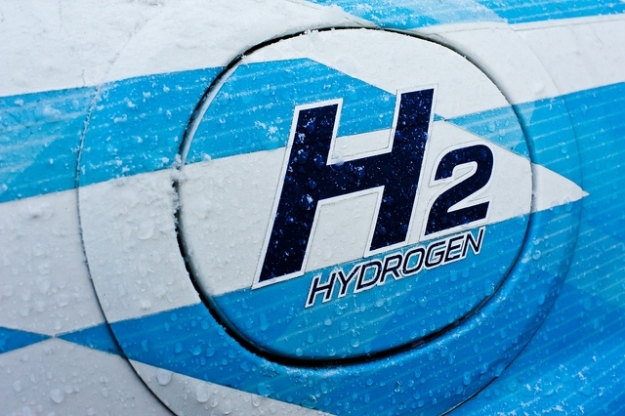 «
«